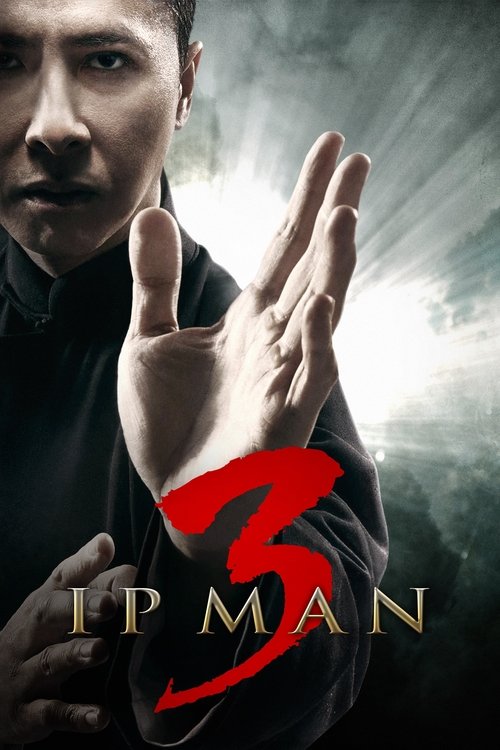
Title: Ip Man 3
Year: 2015
Director: Wilson Yip
Writer: Chan Tai-Lee
Cast: Donnie Yen (Ip Man),
Zhang Jin (Cheung Tin-Chi),
Lynn Hung Doi-Lam (Cheung Wing-Sing),
Patrick Tam (Ma King-Sang),
Mike Tyson (Frank),
Runtime: 105 min.
Synopsis: When a band of brutal gangsters led by a crooked property developer make a play to take over the city, Master Ip is forced to take a stand.
Rating: 7.017/10
The Dance of Duty and Devotion in Ip Man 3
/10
Posted on July 21, 2025
In Ip Man 3 (2015), director Wilson Yip crafts a martial arts elegy that transcends the genre’s penchant for spectacle, weaving a poignant meditation on duty, love, and legacy. Donnie Yen’s portrayal of Ip Man, the Wing Chun master, is the film’s beating heart. Yen imbues Ip with a quiet gravitas, his eyes conveying a man burdened by responsibility yet anchored by devotion to his family. This third installment shifts focus from national pride to personal sacrifice, exploring Ip’s struggle to balance his role as a protector of his community with his duties as a husband and father. The screenplay, co-written by Edmond Wong, deftly interweaves these intimate stakes with the external threat of a ruthless property developer (Mike Tyson, surprisingly effective in a restrained role). While the plot occasionally leans on convenient contrivances such as a rival martial artist’s abrupt redemption arc the emotional core remains unflinchingly authentic.
Yip’s direction is a masterclass in pacing, allowing meditative silences to coexist with kinetic fight sequences. The choreography, overseen by Yuen Woo-ping, is less about flashy acrobatics and more about precision, each strike a narrative beat reflecting Ip’s inner resolve. A standout scene pits Ip against a muay thai fighter in a cramped elevator, where the confined space amplifies the raw physicality and desperation of the encounter. Cinematographer Kenny Tse enhances this intimacy with tight framing and muted tones, grounding the film’s Hong Kong setting in a gritty, lived-in realism. The 1950s backdrop, with its bustling markets and colonial undercurrents, becomes a character in itself, reflecting the tension between tradition and encroaching modernity.
However, the film’s score by Kenji Kawai occasionally overreaches, with swelling strings that feel heavy-handed in quieter moments, undercutting the subtlety of Yen’s performance. Additionally, the subplot involving Bruce Lee (played by Danny Chan) feels underdeveloped, serving more as a nod to fans than a meaningful contribution to the narrative. Despite these missteps, Ip Man 3 succeeds by prioritizing emotional resonance over martial arts bravado. It’s a film that dares to slow down, letting its hero’s humanity his love for his ailing wife, his quiet mentorship shine brighter than his fists. This is a fitting, if imperfect, chapter in Ip Man’s cinematic legacy, one that honors the man behind the myth.
0
0
